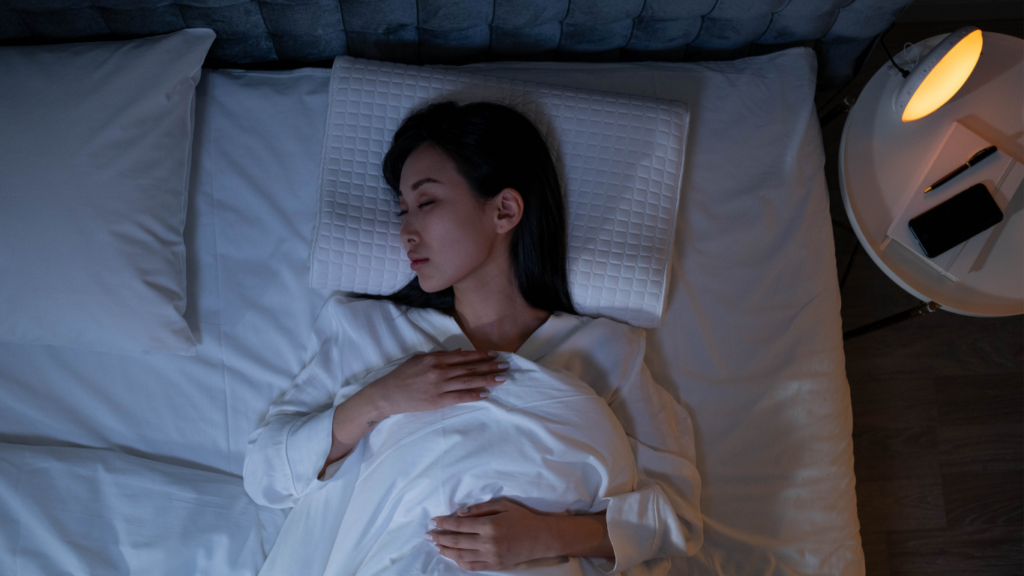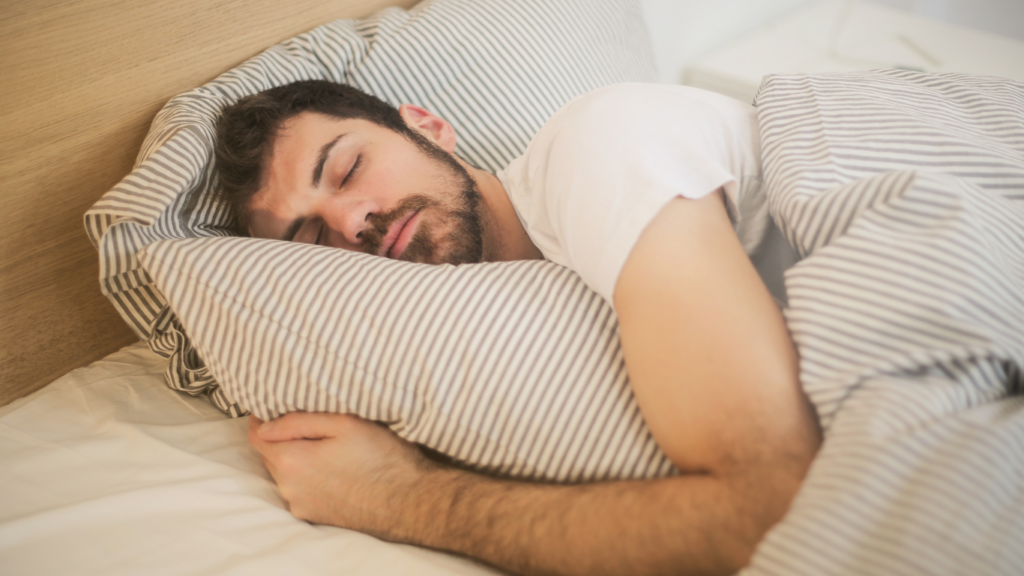The Importance of Quality Sleep
Quality sleep is essential for physical health, mental well-being, and daily productivity. Lack of proper rest can lead to weakened immune function, increased stress, and reduced cognitive performance. According to the Centers for Disease Control and Prevention (CDC), adults need at least 7 hours of sleep per night to maintain optimal health and functioning.
Poor sleep can contribute to chronic conditions such as heart disease, diabetes, and obesity. Insufficient rest also impacts mood and emotional stability, increasing the likelihood of anxiety and depression. The National Sleep Foundation highlights that consistent good sleep supports memory consolidation, learning, and problem-solving abilities.
In a world where screens and busy schedules dominate, it’s crucial to prioritize sleep. Healthy sleep habits can enhance overall quality of life, reducing fatigue and improving mood. Establishing a regular sleep routine and creating a conducive sleep environment are practical steps to ensure restful and rejuvenating nights.
Quality sleep can positively affect work performance, relationships, and general health. By understanding its significance and implementing simple habits, better sleep and improved well-being can be achieved.
Identifying Sleep Disruptors
Understanding what hampers sleep is crucial for improvement. Identifying sleep disruptors can lead to better nights.
Common Causes of Poor Sleep
Several factors can disturb sleep. Stress often tops the list, with high-stress levels making it hard to relax. Diet plays a role too; consuming caffeine or heavy meals before bed can keep you awake. Alcohol, though initially a sedative, can disrupt sleep later in the night. Irregular sleep schedules confuse your internal clock, making consistent rest difficult.
- Stress: High-stress levels lead to insomnia.
- Diet: Caffeine keeps you awake; heavy meals cause discomfort.
- Alcohol: Disrupts sleep even if it helps you fall asleep initially.
- Irregular Sleep Schedules: Confuses your body’s internal clock.
The Impact of Electronics
Electronics significantly affect sleep quality. Devices emit blue light, which hinders melatonin production, a hormone that regulates sleep. Checking emails or scrolling through social media can also stimulate the mind, making it harder to wind down. The National Sleep Foundation recommends turning off screens at least an hour before bedtime to enhance sleep quality.
- Blue Light: Hinders melatonin production, affecting sleep.
- Mental Stimulation: Checking emails or social media can keep the mind active.
- Recommendation: Turn off screens an hour before bed for better sleep.
By addressing these disruptors, you can pave the way for more peaceful and restorative nights.
Creating a Sleep-Friendly Environment
Optimizing the bedroom and selecting proper bedding contribute significantly to better sleep. Implementing these strategies can make a noticeable difference in sleep quality.
Optimizing Your Bedroom
A bedroom designed for sleep comfort boosts relaxation and restfulness. Start by minimizing noise, as unexpected sounds can disrupt sleep cycles. Using earplugs or a white noise machine can help. Maintain a cool temperature to reduce discomfort; 60-67°F is ideal according to the National Sleep Foundation.
Control lighting to enhance sleep hormones. Use blackout curtains to block external light and eliminate sources of bright light within the room. Dim and warm lighting, especially in the evening, mimics natural sunset and signals the body it’s time to rest. Keeping the bedroom clutter-free and clean can further enhance relaxation, as it creates a serene and inviting space.
Choosing the Right Bedding
Selecting appropriate bedding plays a key role in achieving restful sleep. The right mattress should provide support and comfort, fitting personal preferences for firmness or softness. Memory foam and innerspring mattresses are popular options; choose based on comfort and any specific health needs, like back support.
Pillows should maintain head and neck alignment with the spine. For side sleepers, thicker pillows offer better support, while stomach sleepers benefit from flatter pillows. The Sleep Foundation suggests changing pillows every 1-2 years for optimal support.
Finally, breathable and soft bed linens improve comfort. Natural fibers like cotton and bamboo wick away moisture and regulate body temperature, reducing night sweats and discomfort. Select high-thread-count sheets for durability and a luxurious feel, enhancing the overall sleep experience.
Establishing a Sleep Routine

Consistent routines can help regulate the body’s internal clock, leading to better sleep quality. Establishing a sleep routine involves various habits that signal the body it’s time to wind down.
Consistent Sleep Schedule
Maintaining a consistent sleep schedule is crucial. I encourage going to bed and waking up at the same time every day, even on weekends. This stability syncs with the body’s circadian rhythm.
- Wake and Bed Times: Set a fixed time for both, ensuring at least 7-8 hours of sleep.
- Gradual Adjustments: Make any changes in 15-minute increments weekly.
- Avoid Naps: Limit daytime napping to 20 minutes, particularly in the afternoon.
A consistent schedule primes the body for sleep, enhancing the ability to fall asleep quickly and wake up refreshed.
Pre-Bedtime Rituals
Engaging in calming activities before bed can enhance the transition to sleep.
- Reading: Opt for a physical book or an e-reader with no backlight to prevent blue light exposure.
- Warm Bath: Take a bath 60-90 minutes before bed to lower body temperature.
- Soft Music: Listen to soothing music to help relax the mind.
These rituals signal the brain that it’s time to prepare for sleep, helping reduce stress and anxiety, and leading to more restful nights.
Lifestyle Changes for Better Sleep
Simple lifestyle adjustments can greatly enhance sleep quality. I’ll explore the influence of nutrition, exercise, and relaxation techniques on restful nights.
Nutrition and Sleep
What you eat impacts your sleep. Late-night meals or caffeine consumption can disrupt sleep patterns. Avoiding large meals, caffeine, and alcohol before bedtime helps sleep quality. Foods rich in tryptophan (turkey, nuts, seeds) support serotonin production, aiding relaxation. Consuming magnesium-rich foods (leafy greens, bananas, almonds) can also promote better sleep by calming the nervous system. Research from the National Sleep Foundation suggests that a balanced diet enhances sleep duration and quality.
Exercise and Relaxation Techniques
Regular physical activity improves sleep quality. Aerobic exercise boosts endorphin levels, reducing stress and enhancing sleep. Avoid vigorous exercise close to bedtime as it may energize instead of relax. Gentle activities like yoga or stretching can effectively promote relaxation. Relaxation techniques like deep breathing, progressive muscle relaxation, and meditation help prepare the mind and body for sleep. Studies by the Sleep Foundation show that incorporating these habits leads to longer, deeper sleep.
Natural Remedies and Supplements
Natural remedies and supplements present effective solutions for enhancing sleep. These options often provide benefits without the potential side effects of prescription medications.
Herbal Teas and Aromatherapy
Herbal teas have long been used to promote relaxation and restful sleep. Chamomile tea, for instance, contains apigenin, an antioxidant that binds to certain receptors in the brain, inducing sleepiness. Valerian root tea is another popular choice known for its calming effects, reducing the time it takes to fall asleep. Passionflower tea can help ease anxiety, making it easier to unwind.
Aromatherapy uses essential oils to improve sleep quality. Lavender oil is widely acknowledged for its ability to enhance relaxation and reduce anxiety. Diffusing lavender oil in the bedroom or adding a few drops to a pillow can create a calming environment. Other beneficial oils include chamomile and sandalwood. For a more immersive experience, consider using a diffuser or adding these oils to a warm bath before bedtime.
Over-The-Counter Supplements
Over-the-counter supplements can be useful for those seeking to improve sleep naturally. Melatonin, a hormone that regulates the sleep-wake cycle, is a popular supplement taken in small doses to adjust the body’s internal clock. Studies have shown that melatonin can be particularly effective for people dealing with jet lag or shift work.
Magnesium supplements support relaxation and reduce insomnia. They regulate neurotransmitters responsible for sending signals within the nervous system and brain. For example, magnesium glycinate is known for its calming effects.
Valerian root supplements are another option. These have been used to alleviate anxiety and improve sleep quality. Studies have found that valerian root can enhance overall sleep depth and reduce the time needed to fall asleep. When considering these options, consulting a healthcare professional is advisable to ensure compatibility with individual health needs and conditions.


 Patience Degarmonic was instrumental in building the community and health sections of News Flip Network, bringing a fresh perspective to the platform. Her focus on wellness content, along with her efforts in curating relevant and insightful articles, added depth to the site’s offerings. Degarmonic’s contributions ensured that readers not only stay informed about current events but also gain valuable tips for leading balanced and healthy lives.
Patience Degarmonic was instrumental in building the community and health sections of News Flip Network, bringing a fresh perspective to the platform. Her focus on wellness content, along with her efforts in curating relevant and insightful articles, added depth to the site’s offerings. Degarmonic’s contributions ensured that readers not only stay informed about current events but also gain valuable tips for leading balanced and healthy lives.